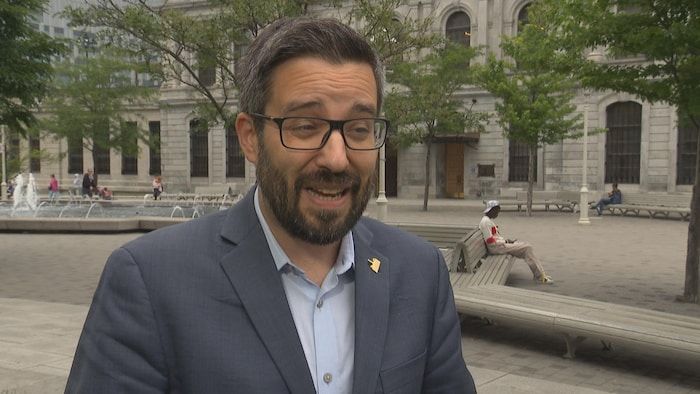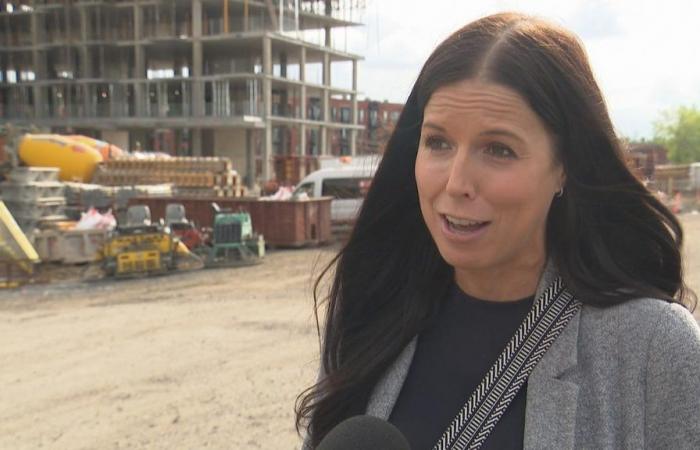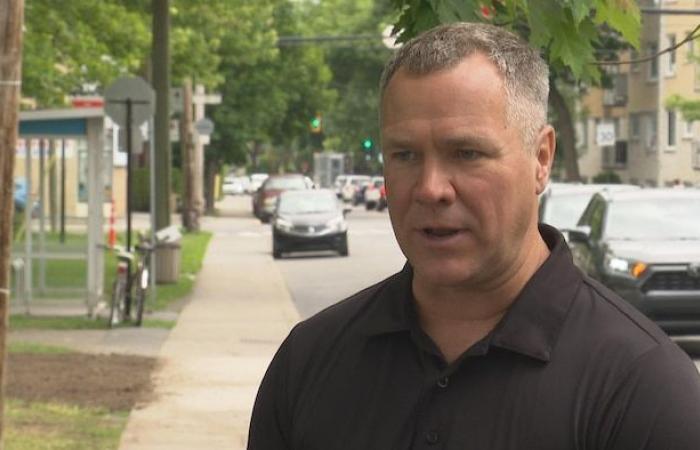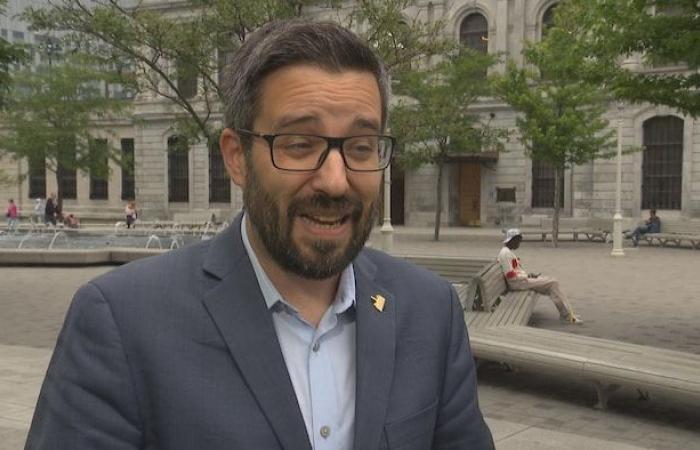The City of Montreal is increasing communications to announce real estate projects.
In its new 2050 Urban Planning and Mobility Plan presented this week, for example, the Plante administration revealed the objective of building 200,000 new housing units.
On a daily basis, however, real estate developers report delays in obtaining residential construction and housing permits.
Open in full screen mode
The Canoë project in HOMA provides for 1,000 housing units and approximately 60,000 square feet of commercial space.
Photo: Radio-Canada
In the Hochelaga-Maisonneuve borough, Mélanie Robitaille, vice-president, general manager of Rachel Julien, says she waited 11 months before obtaining the permit for the Canoë project, not counting the approval process.
As a Montrealer, I wonder: is it normal that a project that can accommodate 1,000 housing units, including a significant proportion of social and affordable housing, finds itself unable to be delivered until July 2027 when the site is available for development since 2019?
According to the vice-president, For us, there is definitely a deterioration in terms of the deadlines required for the issuance of permits and the deadlines required for the approval of projects in general.
.
Thomas Smeesters, president of the construction company Tomico, also notes an increase in deadlines. It’s been maybe five years since we’ve had any fun, because of deadlines that are too long (…) and requests that are too tedious
he says.
In business for more than 20 years, the latter recently gave up on two real estate projects, including one with 20 housing units.
I can say that in Montreal, it’s worse than a question of complexity: we wonder if we really want to help entrepreneurs.
Open in full screen mode
Thomas Smeesters, president of Construction Tomico.
Photo: Radio-Canada
The president of Construction Tomico is heading to Longueuil where he has just submitted a request for a project of around fifty housing units.
To date, what I notice is that at least when our idea is received, we are already better received. We get challenged, that’s normal, but at least it looks like we’re in good faith and we want the project to happen.
notes Mr. Smeesters.
An average of around 300 days in Montreal
According to a compilation by Radio-Canada, the average delays in Montreal boroughs for issuing permits for new constructions increased from 180 days in 2019 to nearly 300 days in 2023.
These figures include delays linked to regulatory exemptions for large-scale projects.
In Longueuil, the average number of days for a residential construction permit remained stable at 71 days during the same period.
In Laval, the average time has halved to 120 days for new construction.
Same story in Gatineau, the 4th largest city in Quebec, where the average time for a housing construction permit has fallen from 89 days to 44 days in five years. The average delay was 37 days for residential construction.
In Terrebonne, pending files (postponed at the request of the applicant) or pending files (incomplete or non-compliant file) have inflated the 2023 data.
End of widget. Return to start of widget?
For Isabelle Melançon, CEO of the Urban Development Institute of Quebec, there is an urgent need to act, particularly in Montreal.

Open in full screen mode
For Isabelle Melançon, CEO of the Urban Development Institute of Quebec, it is urgent to act to reduce the delays in issuing construction permits.
Photo: Radio-Canada
Real estate developers understand that their projects must be analyzed, they do not want to build just anything
she explains.
But we have to be predictable. Business people want to know: how long will it take me, how much will it cost me to do the development? (…) We must also tackle requests for exemptions.
The latter recalls data from the CMHC which estimated that 1.3 million housing units would have to be built in Quebec by 2030 to find acceptable rents.
At the city of Montreal, Robert Beaudry, member of the executive committee and responsible for urban planning, is hopeful of being able to reduce the delays in obtaining permits. The new urban plan provides for fewer exemptions for major projects, he specifies.

Open in full screen mode
Robert Beaudry, member of the executive committee and responsible for urban planning, is hopeful of being able to reduce the delays in obtaining permits.
Photo: Radio-Canada
He nevertheless explains that the Montreal context is more complex.
We are in a very dense built environment, which we do not have in many large cities in Quebec. (…) The majority of our projects are carried out in already built centers, sometimes which involve demolition, sometimes which involve transformation, reconstruction, which also involve heritage issues.
Montreal is also involved in financing numerous affordable housing acquisition projects.









